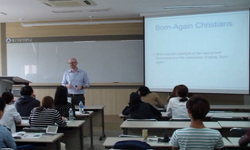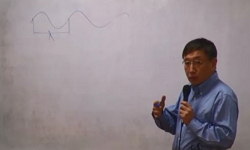Objectives: Despite severe oligospermia, males with Y chromosome microdeletion can achieve conception through ICSI (Intracytoplasmic Sperm Injection). However, ICSI may not only result in the transmission of microdeletions but also the expansion of de...
http://chineseinput.net/에서 pinyin(병음)방식으로 중국어를 변환할 수 있습니다.
변환된 중국어를 복사하여 사용하시면 됩니다.
- 中文 을 입력하시려면 zhongwen을 입력하시고 space를누르시면됩니다.
- 北京 을 입력하시려면 beijing을 입력하시고 space를 누르시면 됩니다.
미세정자주입술로 임신이 된 남자태아의 Y 염색체 미세결실의 Vertical Transmission, de novo, 그리고 Expansion의 연구 = A Vertical Transmission, de novo, and Expansion of Y chromosome Microdeletion in Male Fetuses Pregnant after Intracytoplasmic Sperm Injection
한글로보기https://www.riss.kr/link?id=A100664352
-
저자
김현아 (포천중문의과대학교) ; 이숙환 (포천중문의과대학교) ; 조성원 (포천중문의과대학교) ; 정혜진 (포천중문의과대학교) ; 손수민 (포천중문의과대학교) ; 강수진 (포천중문의과대학교) ; 배성근 (포천중문의과대학교) ; 김수희 (포천중문의과대학교) ; 윤태기 (차의과학대학교) ; Kim, Huyn-Ah ; Lee, Sook-Hwan ; Cho, Sung-Won ; Jeong, Hye-Jin ; Son, Soo-Min ; Kang, Soo-Jin ; Bae, Seong-Keun ; Kim, Soo-Hee ; Yoon, Tae-Ki
- 발행기관
- 학술지명
- 권호사항
-
발행연도
2004
-
작성언어
Korean
- 주제어
-
자료형태
학술저널
- 발행기관 URL
-
수록면
105-110(6쪽)
-
KCI 피인용횟수
0
- 제공처
-
0
상세조회 -
0
다운로드
부가정보
다국어 초록 (Multilingual Abstract)
Objectives: Despite severe oligospermia, males with Y chromosome microdeletion can achieve conception through ICSI (Intracytoplasmic Sperm Injection). However, ICSI may not only result in the transmission of microdeletions but also the expansion of deletion to the offspring. The purpose of this study was to screen vertical transmission, expansion of microdeletions and de novo deletion in male fetuses conceived by ICSI. Materials and Methods: A total of 32 ICSI treated patients with their 33 (a case of twin) male fetuses conceived by ICSI were used to make this study group. Sequence-tagged sites (STSs)-based PCR analyses were performed on genomic DNA isolated from peripheral blood of fathers and from the amniocytes of male fetuses. Ten primer pairs namely, sY134, sY138, MK5, sY152, sY147, sY254, sY255, SPGY1, sY269 and sY158 were used. The samples with deletions were verified at least three times. Results: We detected a frequency of 12.5% (4 of the 32 patients) of microdeletions in ICSI patients. In 4 patients with detected deletions, two patients have proven deletions on single STS marker and their male fetuses have the identical deletion in this region. Another two patients have two and three deletions, but their male fetuses have more than 3 deletions which include deletions to their father's. Meanwhile, seven male fetuses, whose fathers were analyzed to have all 10 STS markers present, have deletions present in at least one or more of the markers. Conclusions: Although the majority of deletions on the Y chromosome are believed to arise de novo, in some cases a deletion has been transmitted from the fertile father to the infertile patient. In other cases the deletion was transmitted through ICSI treatment, it is likely that one sperm cell is injected through the oocyte's cytoplasm and fertilization can be obtained from spermatozoa. Our tests for deletion were determined by PCR and our results show that the ICSI treatment may lead to vertical transmission, expansion and de novo Y chromosome microdeletions in male fetuses. Because the sample group was relatively small, one should be cautious in analyzing these data. However, it is important to counsel infertile couples contemplating ICSI if the male carries Y chromosomal microdeletions.
참고문헌 (Reference)
1 "Yang YS Transmission of de novo mutations of the deleted in azoospermia genes from a severely oligo- spermic male to a son via intracytoplasmic sperm injection" 71 : 1029-1032, 1999
2 "Y-chromosomal microdeletion in a father and his four infertile sons" 14 : 2689-2694, 1999
3 "Y chromosome assessment and its implications for the development of ICSI children" 8 : 307-318, 2004
4 "Widening of a Y-chromosome interval-6 deletion transmitted from a father to his infertile son accounts for an oligozoospermia criti- cal region distal to the RBM1 and DAZ genes" 6 : 1393-1395, 1996
5 "Transmission of Y chromosomal microde- letions from father to son through intracytoplasmic sperm injection" 47 : 465-468, 2002
6 "Three-generation evaluation of Y-chromosome microdeletion" 20 : 394-398, 1999
7 "The incidence and possible relevance of Y-linked microdeletions in babies born after intracytoplasmic sperm injection and their infertile fathers" 2 : 943-950, 1996
8 "The human Y chromosome's AZFc region features massive palin- dromes,uniform recurrent deletions and testis gene families" 29 : 279-286, 2001
9 "Reduced copy number of DAZ genes in subfertile and infertile men" 74 : 909-915, 2000
10 "Men with infertility caused by AZFc deletion can produce sons by intra- cytoplasmic sperm injection,but are likely to tran- smit the deletion and infertility" 14 : 1722-1726, 1999
1 "Yang YS Transmission of de novo mutations of the deleted in azoospermia genes from a severely oligo- spermic male to a son via intracytoplasmic sperm injection" 71 : 1029-1032, 1999
2 "Y-chromosomal microdeletion in a father and his four infertile sons" 14 : 2689-2694, 1999
3 "Y chromosome assessment and its implications for the development of ICSI children" 8 : 307-318, 2004
4 "Widening of a Y-chromosome interval-6 deletion transmitted from a father to his infertile son accounts for an oligozoospermia criti- cal region distal to the RBM1 and DAZ genes" 6 : 1393-1395, 1996
5 "Transmission of Y chromosomal microde- letions from father to son through intracytoplasmic sperm injection" 47 : 465-468, 2002
6 "Three-generation evaluation of Y-chromosome microdeletion" 20 : 394-398, 1999
7 "The incidence and possible relevance of Y-linked microdeletions in babies born after intracytoplasmic sperm injection and their infertile fathers" 2 : 943-950, 1996
8 "The human Y chromosome's AZFc region features massive palin- dromes,uniform recurrent deletions and testis gene families" 29 : 279-286, 2001
9 "Reduced copy number of DAZ genes in subfertile and infertile men" 74 : 909-915, 2000
10 "Men with infertility caused by AZFc deletion can produce sons by intra- cytoplasmic sperm injection,but are likely to tran- smit the deletion and infertility" 14 : 1722-1726, 1999
11 "Localization of factors con- trolling spermatogenesis in the nonfluorescent of the human Y chromosome long arm" 34 : 119-124, 1976
12 "Human Y chromo some azoospermia factor(AZF)mapped to different subregions in Yq11" 5 : 933-943, 1996
13 "Genomic disoders:structural features of the genome can lead to DNA rearrangements and human dieases traits" 14 : 417-422, 1998
14 "Genetic follow-up of male offspring born by ICSI,using a multiplex fluore-scent PCR-based test for Yq deletions" 8 : 589-595, 2002
15 "Four DAZ genes in two clusters found in the AZFc region on the human Y chromosome" 67 : 256-267, 2000
16 "Diverse spermatogenic defects in humans caused by Y chromosome deletions encom- passing a novel RNA-binding protein gene" 10 : 383-393, 1995
17 "Clinical characterization of 42 oligospermic or azoospermic men with microdeletion of the AZFc region of the Y chromosome,and of 18 children conceived via ICSI" 17 : 2813-2824, 2002
동일학술지(권/호) 다른 논문
-
난소의 자궁내막종에 대한 다양한 치료적 적용에 따른 체외수정 및 배아이식술 결과의 비교 연구
- 대한생식의학회
- 이방현
- 2004
-
불임여성에서 NAT2, GSTM1, CYP1A1 유전자 다형성과 자궁내막증의 상관관계에 관한 연구
- 대한생식의학회
- 송현정
- 2004
-
- The Korean Society for Reproductive Medicine
- 강수만
- 2004
-
GnRH-agonist에 의한 인간 과립-황체화 세포의 세포사멸과 PBR 단백질의 발현
- 대한생식의학회
- 김세광
- 2004
분석정보
인용정보 인용지수 설명보기
학술지 이력
| 연월일 | 이력구분 | 이력상세 | 등재구분 |
|---|---|---|---|
| 2024 | 평가예정 | 해외DB학술지평가 신청대상 (해외등재 학술지 평가) | |
| 2021-01-01 | 평가 | 등재학술지 선정 (해외등재 학술지 평가) |  |
| 2020-12-01 | 평가 | 등재후보로 하락 (해외등재 학술지 평가) |  |
| 2012-01-05 | 학술지명변경 | 한글명 : 대한생식의학회지 -> Clinical and Experimental Reproductive Medicine외국어명 : The Korean Journal of Reproductive Medicine -> Clinical and Experimental Reproductive Medicine |  |
| 2010-01-01 | 평가 | 등재학술지 유지 (등재유지) |  |
| 2007-08-28 | 학술지명변경 | 한글명 : 대한불임학회지 -> 대한생식의학회지외국어명 : The Korean Journal of Fertility and Sterility -> The Korean Journal of Reproductive Medicine |  |
| 2007-08-28 | 학회명변경 | 한글명 : 대한불임학회 -> 대한생식의학회영문명 : Korean Society For Fertility And Sterility -> The Korean Society for Reproductive Medicine |  |
| 2007-01-01 | 평가 | 등재학술지 선정 (등재후보2차) |  |
| 2006-01-01 | 평가 | 등재후보 1차 PASS (등재후보1차) |  |
| 2004-07-01 | 평가 | 등재후보학술지 선정 (신규평가) |  |
학술지 인용정보
| 기준연도 | WOS-KCI 통합IF(2년) | KCIF(2년) | KCIF(3년) |
|---|---|---|---|
| 2016 | 0 | 0 | 0 |
| KCIF(4년) | KCIF(5년) | 중심성지수(3년) | 즉시성지수 |
| 0 | 0 | 0 | 0 |




 ScienceON
ScienceON



